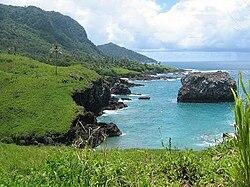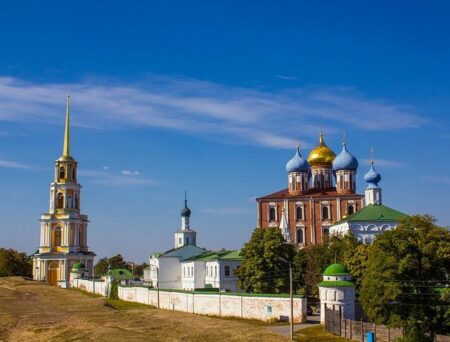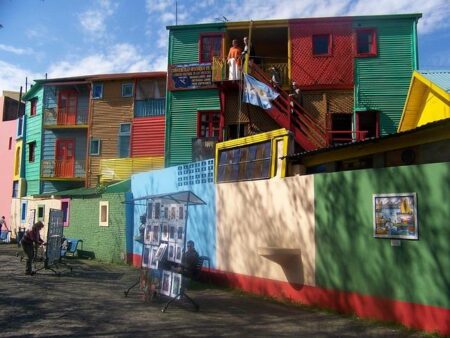Nestled off the west coast of Central Africa, the remote island of AnnobĂłn has long been a quiet outpost of Equatorial Guinea. But now, this small volcanic island is making headlines for an unusual political aspiration: some of its inhabitants are advocating not only for greater autonomy or full independence but also for a surprising alliance-with Argentina. As the debate gains momentum, AnnobĂłn’s unique cultural ties and geopolitical ambitions are attracting international attention, raising questions about identity, sovereignty, and the legacy of colonial borders. This article explores the complex dynamics behind AnnobĂłn’s quest to redefine its future.
AnnobĂłn’s Unique Colonial Legacy Fuels Calls for Independence
Nestled off the west coast of Central Africa, AnnobĂłn’s colonial history is unlike many of its regional counterparts. The island’s distinct heritage, shaped by centuries of Portuguese and Spanish influence, has cultivated a unique identity that is fueling a potent desire for autonomy. Locals argue that their culture, language, and traditions have been historically sidelined by the central government in Malabo, making independence not just a political aspiration but a means to reclaim cultural dignity. This sentiment is amplified by the island’s geographic isolation and limited infrastructural investments, which many say hinder economic development and perpetuate marginalization.
What sets AnnobĂłn apart is the intriguing proposition circulating among some islanders: either full sovereignty or integration with Argentina, a country they oddly view as a symbol of opportunity and stability. This uncommon geopolitical desire reflects a complex worldview where colonial legacies intertwine with contemporary identities and aspirations.
- Portuguese Colonial Impact: lasting linguistic and architectural influences
- Spanish Administrative Control: shaping political dynamics post-independence
- Cultural Hybridization: blending African and European traditions
| Aspect | Current Status | Islanders’ Aspirations |
|---|---|---|
| Political Autonomy | Limited self-governance | Full independence or new alliances |
| Economic Development | Underdeveloped infrastructure | Investment and improved connectivity |
| Cultural Identity | Marginalized traditions | Revitalization and preservation |
Cultural and Economic Ties Drive Interest in Joining Argentina
For many residents of AnnobĂłn, the island’s cultural fabric is intricately linked to Argentine traditions, fueled largely by a long history of migration and shared heritage. Family ties across continents have created a unique blend of customs, with the Spanish language and Catholic faith serving as unifying elements. This cultural affinity has cultivated a growing interest in closer relations with Argentina, not only as a symbolic gesture but as a pathway to enhanced social and educational opportunities. Local festivals, culinary exchanges, and music have increasingly reflected Argentine influences, underscoring the deep emotional connection the islanders feel towards South America’s southern giant.
Economic considerations further solidify the appeal of potential integration with Argentina. AnnobĂłn’s residents face challenges related to limited resources and geographic isolation, prompting them to seek partnerships that promise infrastructural investment and trade expansion. Argentina’s developing industries, access to larger markets, and robust support for agriculture and fishing offer tangible benefits. Key economic incentives discussed by community leaders include:
- Access to broader export networks for local fish and agricultural products
- Improved educational and healthcare infrastructure through bilateral support programs
- Potential for tourism development leveraging Argentina’s global visibility
- Financial aid and development grants aimed at elevating local standards of living
| Key Economic Sectors | Current Status | Potential Argentine Support | |
|---|---|---|---|
| Fishing | Small-scale, local markets | Expansion to export markets | |
| Agriculture | Subsistence farming with limited productivity | Introduction of modern techniques and technology | |
| Tourism | Nascent, mostly domestic visitors | Joint promotional campaigns and infrastructure development | |
| Healthcare and Education | Limited facilities and resources | Training programs, facility upgrades, and resource allocation |
Experts Urge Dialogue and International Mediation to Address Island’s Future
Leading voices from diplomatic circles and regional experts emphasize the necessity of open dialogue and multilateral mediation to navigate the complex political aspirations surrounding AnnobĂłn. As tensions rise between factions advocating for either full independence or integration with Argentina, these experts warn that unilateral actions could exacerbate instability not only on the island but across the Gulf of Guinea region. They call for inclusive talks involving local leaders, the Equatoguinean government, and international mediators to seek lasting resolutions based on mutual respect and historical context.
Several proposed frameworks highlight key priorities for mediation efforts, such as safeguarding human rights, maintaining regional security, and ensuring economic sustainability for AnnobĂłn’s population. A recent outline suggested by foreign affairs analysts includes the following components:
- Establishment of a neutral mediation council with representatives from the African Union and the United Nations.
- Regular forums for local stakeholders to express concerns and propose solutions.
- Economic support packages tied to agreed political outcomes, aiming to improve living standards.
| Stakeholder | Role in Mediation | Key Interest |
|---|---|---|
| Equatoguinean Government | Negotiator and guarantor of sovereignty | Territorial integrity |
| AnnobĂłn Local Council | Primary community voice | Political recognition and development |
| Argentine Representatives | Advocates for integration claims | Cultural and political ties |
| International Mediators | Facilitate dialogue and agreements | Regional stability and peace |
To Conclude
As AnnobĂłn navigates its complex identity and aspirations, the island remains a unique case in Africa’s geopolitical landscape. Whether striving for independence or seeking closer ties with distant Argentina, the choices ahead reflect deep historical, cultural, and political currents. How this remote community’s ambitions unfold will not only shape its own future but also raise important questions about sovereignty, self-determination, and the lasting legacies of colonial borders in the 21st century.




